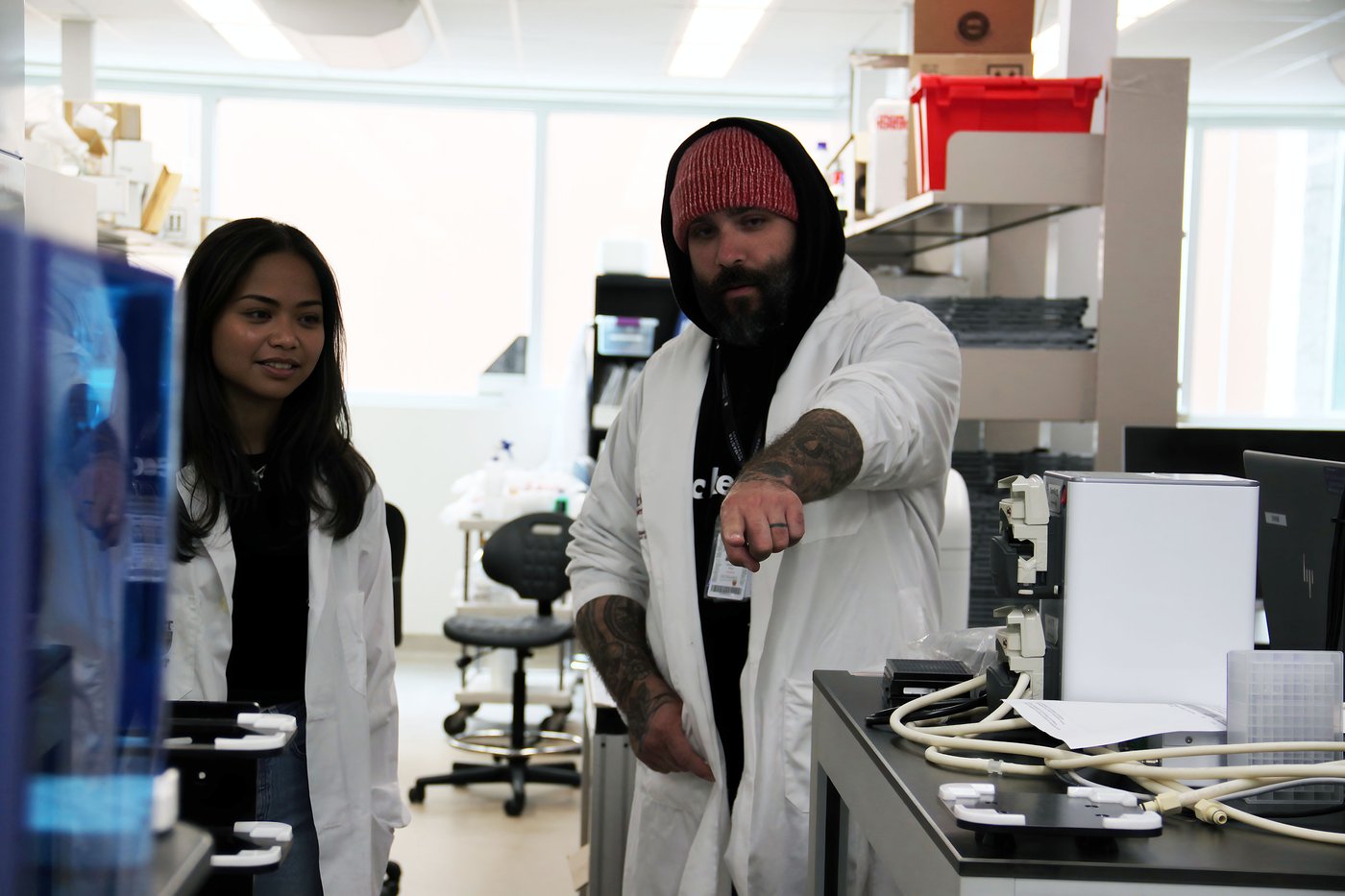Science
AI Accelerates Discovery of Breakthrough Antibiotic for Bowel Disease

A researcher at McMaster University has harnessed the power of artificial intelligence (AI) to develop a promising antibiotic treatment for Crohn’s disease and inflammatory bowel disease. Jon Stokes, along with his team and collaborators at the Massachusetts Institute of Technology (MIT), successfully isolated a new antibiotic treatment in less than half the time typically required for such a process.
Traditionally, the development of new antibiotics can cost millions of dollars and take several years. However, with the implementation of AI sequencing techniques, Stokes’ laboratory achieved the initial stages of this process in approximately six months and at a cost of around $60,000. This significant reduction in time and expense marks a potential turning point in antibiotic discovery.
The implications of this research are particularly important as Canada has one of the highest rates of inflammatory bowel disease globally, affecting thousands of individuals. Currently, there is no known cure for these debilitating conditions, which can lead to severe complications and impact the quality of life for many patients.
Wyatt Tessari L’Allié, founder of AI Governance and Safety Canada, commented on the positive aspects of using AI in medical research. He emphasized the necessity for ongoing verification of AI-generated results, highlighting that while this technology presents great opportunities, it must be approached with caution. Tessari L’Allié noted the absence of comprehensive AI legislation in Canada that encompasses healthcare, indicating that medical applications are regulated by Health Canada on a case-by-case basis.
As the field of AI continues to evolve, the potential for transforming medical research and treatment options is vast. Stokes’ work exemplifies how technological advancements can expedite discoveries that may significantly impact patient care, particularly in areas where traditional treatment options are limited.
This groundbreaking report, originally published by The Canadian Press on October 5, 2025, underscores the intersection of technology and healthcare, showcasing how innovation can lead to new solutions for pressing medical challenges.
-

 Lifestyle1 month ago
Lifestyle1 month agoWinnipeg Celebrates Culinary Creativity During Le Burger Week 2025
-

 Health2 months ago
Health2 months agoMontreal’s Groupe Marcelle Leads Canadian Cosmetic Industry Growth
-

 Science2 months ago
Science2 months agoMicrosoft Confirms U.S. Law Overrules Canadian Data Sovereignty
-

 Education2 months ago
Education2 months agoRed River College Launches New Programs to Address Industry Needs
-

 Technology2 months ago
Technology2 months agoDragon Ball: Sparking! Zero Launching on Switch and Switch 2 This November
-

 Science2 months ago
Science2 months agoTech Innovator Amandipp Singh Transforms Hiring for Disabled
-

 Technology2 months ago
Technology2 months agoGoogle Pixel 10 Pro Fold Specs Unveiled Ahead of Launch
-

 Science2 months ago
Science2 months agoChina’s Wukong Spacesuit Sets New Standard for AI in Space
-

 Technology2 months ago
Technology2 months agoWorld of Warcraft Players Buzz Over 19-Quest Bee Challenge
-

 Science2 months ago
Science2 months agoXi Labs Innovates with New AI Operating System Set for 2025 Launch
-

 Business2 months ago
Business2 months agoDawson City Residents Rally Around Buy Canadian Movement
-

 Business2 months ago
Business2 months agoNew Estimates Reveal ChatGPT-5 Energy Use Could Soar
-

 Technology2 months ago
Technology2 months agoFuture Entertainment Launches DDoD with Gameplay Trailer Showcase
-

 Technology2 months ago
Technology2 months agoInnovative 140W GaN Travel Adapter Combines Power and Convenience
-

 Technology2 months ago
Technology2 months agoGlobal Launch of Ragnarok M: Classic Set for September 3, 2025
-

 Education2 months ago
Education2 months agoAlberta Teachers’ Strike: Potential Impacts on Students and Families
-

 Technology2 months ago
Technology2 months agoNew IDR01 Smart Ring Offers Advanced Sports Tracking for $169
-

 Technology2 months ago
Technology2 months agoArsanesia Unveils Smith’s Chronicles with Steam Page and Trailer
-

 Technology2 months ago
Technology2 months agoHumanoid Robots Compete in Hilarious Debut Games in Beijing
-

 Science2 months ago
Science2 months agoNew Precision Approach to Treating Depression Tailors Care to Patients
-

 Health2 months ago
Health2 months agoGiant Boba and Unique Treats Take Center Stage at Ottawa’s Newest Bubble Tea Shop
-

 Technology2 months ago
Technology2 months agoQuoted Tech Launches Back-to-School Discounts on PCs
-

 Business2 months ago
Business2 months agoBNA Brewing to Open New Bowling Alley in Downtown Penticton
-

 Technology2 months ago
Technology2 months agoDiscover the Relaxing Charm of Tiny Bookshop: A Cozy Gaming Escape










